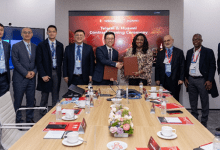
The Association of Ghana Industries (AGI) has urged the government to address the high cost of electricity tariff to boost business growth and make them more competitive.
It also appealed to government to quicken the pace of the implementation of key government policies and interventions for local industry, to help create the enabling environment for businesses to thrive.
This forms part of many recommendations contained in a communique signed and issued by Dr Yaw Adu Gyamfi, AGI President, at the end of a recently held Industrial Summit and Exhibition in Accra.
The three-day event is being organised by the Association of Ghana Industries (AGI), in partnership with VRA on the theme: “Repositioning Ghanaian Industries to leverage the AfCFTA.”
The event, which was held in-person and virtually, seeks to create an avenue for the Ghanaian private sector to dialogue with policy-makers, investors and other industry players.
The AGI explained that the current electricity tariff level does not make local industry competitive, compared to the country’s peers in the sub-region.
“Energy drives industry and we will like to see the reversal of the current tariff regime where industry subsidises for residential customers,” it said.
To address the cost of electricity tariff, AGI proposed that government explored less expensive sources of electricity and energy efficiency and reaffirmed the importance of renewable energy, towards a cleaner energy future and energy security with a view to fostering sustainable economic development.
“Consistent with the SDGs, Goal 7 (Affordable and Clean Energy), we will promote the use of renewable energy and energy efficiency as more businesses begin to realise the value of renewable energy compared to fossil fuel,” AGI said.
“We will like to see all verified schedules of the tariff concessions and transmission of all trading documents quickly published to inform businesses,” it said.
The Association bemoaned the 50 per cent reduction in benchmark values policy for imported goods and the Straight Levy undermine local production, indicating that Government must reconsider these policies to give more meaning to the country’s Industrial Transformation Agenda and export market development for AfCFTA.
While commending the government for its effort towards the resuscitation of local industry, AGI urged local industries to explore the aggregation of exporters including business partnerships that would augment their capacities for AfCFTA.




